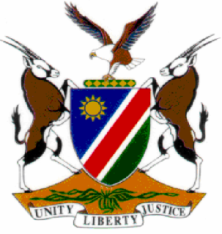
CASE NO.: CC 32/2001
NOT REPORTABLE
IN THE HIGH COURT OF NAMIBIA
HELD AT WINDHOEK
In the matter between:
THE STATE
and
CALVIN LISELI MALUMO & 111 OTHERS
CORAM: HOFF, J
Heard on: 17 November 2011
Delivered on: 17 November 2011 (Ex tempore)
JUDGMENT
HOFF, J: [1] Mr Kauta objected to the refreshment of the witness memory on two grounds.
Firstly, the issue of contemporaniety and secondly that there was no proof that the documents had been written by the same person and in conjunction with that the one document contains no date when it was so written.
[2] Both Counsel referred the Court to the requirements before witness may refresh his/her memory from an earlier record. The first requirement is that the witness must have personal knowledge of the event that is primarily to avoid hearsay evidence inadvertently being admitted in Court. In respect of this requirement the witness testified about a certain event where he was present. And at which event he observed vehicles whose registration numbers he recorded. So that requirement has been satisfied.
[3] The second requirement is the inability of the witness to recollect. In this regard depending on the circumstances the Court may accept his mere ipse dixit, that is his mere say so that he cannot recollect as sufficient to satisfy this requirement. In my view this second requirement has also been satisfied.
[4] The third requirement referred to is the verification of the document used to refresh the memory of the witness. In this regard the witness must have made the recording when the facts were still fresh in his mind. It has been said in this regard that the witness must satisfy himself/herself that whilst the matter was still fresh in his/her mind, firstly a recording has been made and secondly that it is accurate.
[5] Now the test is that the recording must have come into existence when the event was still fresh in the memory of the witness and the issue of contemporaniety can only assist the Court, it is not a test, it can only assist the Court in finding whether events were still fresh in the memory of the witness.
[6] Now it appears in respect of this requirement the State needs to prove this by means of evidence. I have already referred to the object of contemporaniety that is not a test but only one of the issues that would assist the Court in coming to the conclusion whether or not a recording had been made and the event was still fresh in the mind of the witness.
[7] Regarding the issue of the undated document that in my view is not a requirement that a document must be dated and it does not preclude the Court from allowing the witness to refresh his memory from an undated document.
[8] And in this instance where two documents are in issue I am also of the view that the submission that prima facie, on the face of it two documents were not written by the same author does not preclude the Court from allowing the witness to refresh his memory from those two documents.
[9] Counsel and the Court are not expert witnesses in respect of handwriting. And this issue of the apparent difference in handwriting of the two documents as well as the issue of the undated document are issues which surely can be explored during cross-examination and what weight the Court should eventually attach to the evidence of the witness who had refreshed his memory from those documents.
[10] Another requirement not mentioned is that the original document must be used.
[11] Just finally, refreshing of memory is a method of receiving oral evidence. And the documents selves do not become exhibits before the Court.
[12] In the result the objections raised are overruled and the State is requested to proceed with evidence in respect of proving the third requirement of verification of the document.
__________
HOFF, J
ON BEHALF OF THE STATE: MR JULY
Instructed by: OFFICE OF THE PROSECUTOR-GENERAL
ON BEHALF THE DEFENCE; MR KAUTA
Instructed by: DIRECTORATE OF LEGAL AID